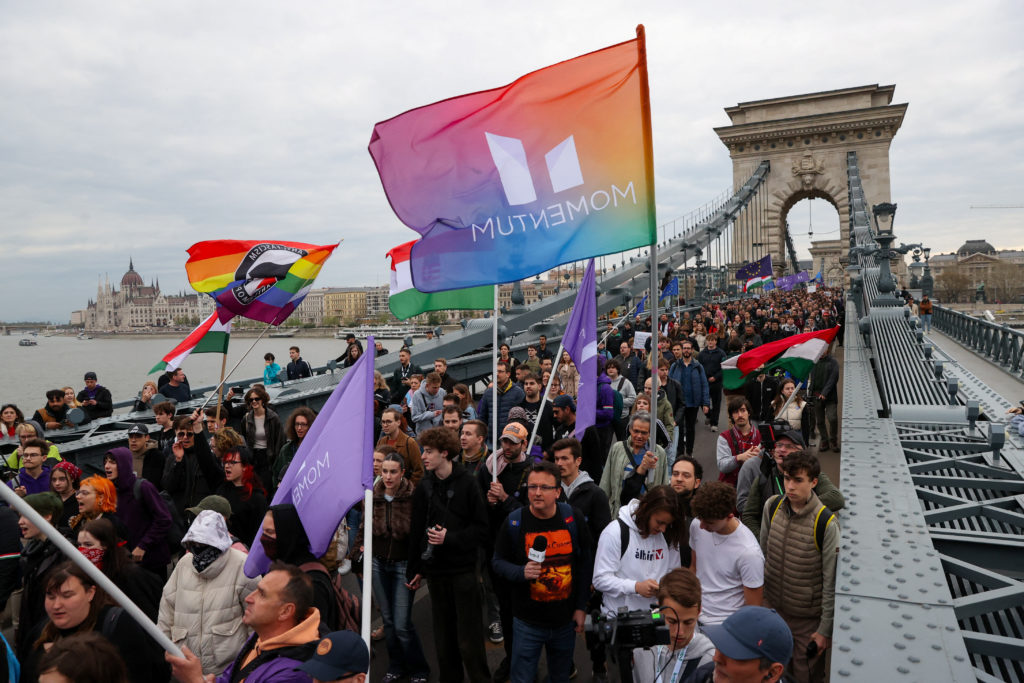Now Reading: Hungary’s Shocking LGBTQ+ Ban: Democracy Under Fire?
-
01
Hungary’s Shocking LGBTQ+ Ban: Democracy Under Fire?

Hungary’s Shocking LGBTQ+ Ban: Democracy Under Fire?
Hungary Makes History With Controversial Constitutional Amendment
In a move sending shockwaves through Europe, Hungary’s parliament has officially passed a constitutional amendment that gives the government unprecedented power to ban LGBTQ+ public events. The controversial legislation passed with 140 votes in favor and just 21 against, following strictly partisan lines.
Prime Minister Viktor Orbán’s ruling Fidesz-KDNP coalition proposed the amendment, marking yet another significant step in what critics describe as Hungary’s steady march away from democratic values. The vote represents the culmination of years of increasingly restrictive policies targeting LGBTQ+ communities.

Protests Erupt as Democracy Advocates Fight Back
The parliamentary vote didn’t proceed without resistance. Opposition politicians and protesters staged a dramatic blockade at the parliament’s parking garage entrance, using zip ties to bind themselves together in a last-ditch effort to prevent the vote from taking place.
Police quickly intervened, physically removing demonstrators in scenes that have since gone viral across social media platforms. The images of authorities forcibly removing elected officials have raised serious questions about the state of democracy in the European Union member state.

The Amendment’s Far-Reaching Implications
At its core, the amendment establishes that children’s rights to “moral, physical and spiritual development” trump all other rights except the right to life—including the fundamental democratic right to peacefully assemble. This effectively gives constitutional backing to Hungary’s already contentious “child protection” legislation.
The existing law prohibits “depiction or promotion” of homosexuality to anyone under 18. With this constitutional amendment, the government has essentially elevated these restrictions to the country’s highest legal level, making them extremely difficult to challenge or overturn.
Perhaps most alarmingly, the amendment cements a law rushed through parliament in March that explicitly bans public events by LGBTQ+ communities—directly targeting Budapest Pride, which typically attracts thousands of participants annually.
Surveillance State: Facial Recognition and Financial Penalties
Beyond merely banning events, the legislation introduces disturbing surveillance elements. Authorities are now permitted to deploy facial recognition technology to identify individuals who attend prohibited events like Budapest Pride.
Those identified can face fines of up to 200,000 Hungarian forints (approximately $546)—a significant sum in a country where the average monthly salary hovers around 500,000 forints. This combination of surveillance and financial penalties creates a powerful deterrent against participation.

Opposition Voices Concerns About Democracy’s Future
Dávid Bedő, a lawmaker with the opposition Momentum party who participated in the protest, expressed grave concerns about Hungary’s democratic trajectory. Before the vote, he stated that Orbán and his Fidesz party have spent 15 years “dismantling democracy and the rule of law” with the process accelerating dramatically in recent months.
The opposition’s concerns extend beyond LGBTQ+ rights to the broader question of Hungary’s democratic foundations. Many see this amendment as part of a larger pattern of consolidating power and restricting civil liberties under the guise of “protecting children.”
The Government’s Justification: “Child Protection” or Political Strategy?
Hungary’s government has framed its increasingly restrictive policies as necessary measures to protect children from what it characterizes as “woke ideology” and “gender madness.” This rhetoric has become central to Orbán’s political platform in recent years.
Critics, however, argue these policies serve multiple political purposes: energizing Orbán’s conservative base, creating divisive social issues that distract from economic challenges, and positioning Hungary in opposition to Western European values—a stance that resonates with many rural and traditional voters.
International Implications and European Union Response
The constitutional amendment places Hungary on a collision course with European Union values and potentially with EU law. Brussels has already initiated multiple legal proceedings against Hungary for previous legislation targeting LGBTQ+ communities, and this latest move will likely trigger additional scrutiny.
Human rights organizations have condemned the amendment as a clear violation of fundamental rights protected by both EU treaties and international human rights conventions. The coming weeks will likely see significant diplomatic pressure applied to Budapest.
As Hungary continues down this path, questions arise about the EU’s ability to enforce compliance with its core values among member states. The situation presents a test case for European institutions already grappling with similar challenges in several Eastern European nations.
What Happens Next for Hungary’s LGBTQ+ Community?
With Pride events effectively criminalized and constitutional protections diminished, Hungary’s LGBTQ+ community faces unprecedented challenges. Advocacy groups are already exploring alternative ways to maintain visibility and community connections while navigating the new legal landscape.
Legal challenges to the amendment will certainly be filed, though with Hungary’s courts increasingly aligned with the government, domestic remedies may prove difficult. International courts and European institutions may offer more promising avenues for challenging the constitutionality of these measures.
Whatever happens next, Hungary’s constitutional amendment marks a significant moment in European politics—one that tests not only the resilience of Hungary’s civil society but also the European Union’s commitment to defending human rights and democratic principles within its borders.









